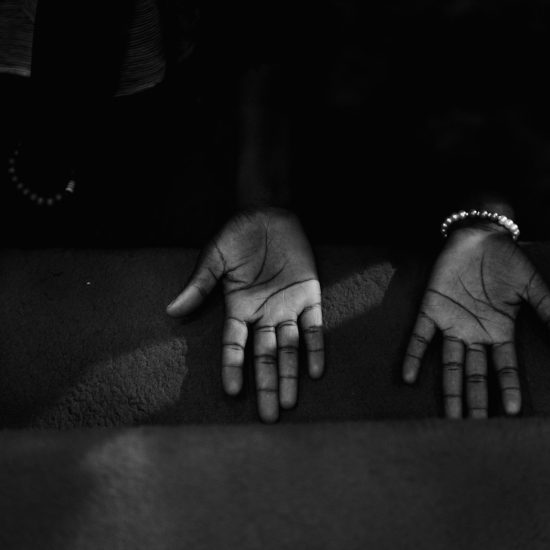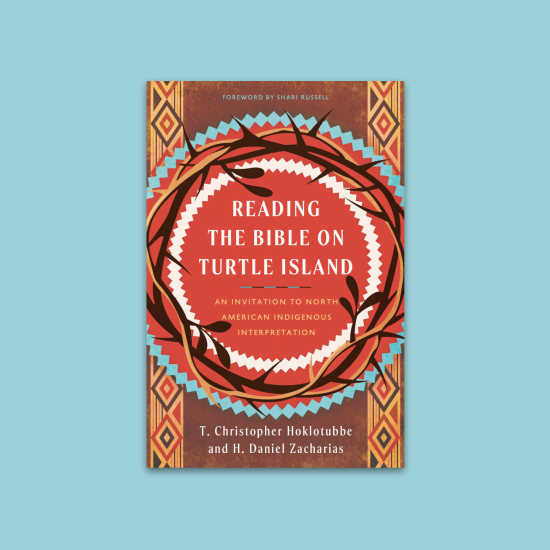

THE ANTI-GREED GOSPEL: Why the Love of Money Is the Root of Racism and How the Church Can Create a New Way Forward. By Malcolm Foley, Grand Rapids, MI: Brazos Press, 2025. Xii + 174 pages.
I am an ordained minister serving in a denomination that seeks to be anti-racist. In pursuit of that calling, clergy are required to participate in regular trainings designed to help us and other church leaders examine ourselves and then commit ourselves to being anti-racist persons. In these trainings, we learn the nature of racism and its implications, with the hope that we will not perpetuate the kinds of racism that have permeated the church through the years. Although there is a great deal of backlash against such trainings, which come under the DEI (Diversity, Equity, and Inclusion umbrella), we’re not alone. Many companies (though many are pulling back under political pressure) along with many Mainline denominations are committed to this work. One of the reasons why these programs are under attack is that it is suggested they are designed to make white people, especially straight white males, feel bad about themselves. It seems that there are people who believe that if we ignore race (be color blind) then racism won’t be an issue. The problem is that whether we wish to acknowledge it, racism does exist. While the usual definition of racism focuses on prejudice with power (the common definition). In fact, racism goes much deeper than this.

Robert D. Cornwall
Providing a guide to going deeper beneath the common definition of racism is Malcolm Foley in his forthcoming book The Anti-Greed Gospel (due out in mid-February 2025). Foley is a historian and pastor with a Ph.D. from Baylor University. Besides co-pastoring Mosaic Waco, a multi-cultural church in Waco, Texas, he serves as a special advisor to the president of Baylor University on matters of equity and campus engagement. While this is Foley’s first book he has written for Christianity Today as well as the Anxious Bench and Mere Christianity.
Foley roots racism in greed. While Foley acknowledges the traditional definitions of racism that involve prejudice and power, he argues that racism is not “primarily about hate and ignorance.” It is, about greed. That is, race and racism are, he argues, the “children of Mammon.” He uses the word Mammon, capitalizing it, because it involves idolatry. According to Jesus, we cannot serve God and Mammon. Going even deeper, he roots racism in covetousness, the desire to accumulate, which is understood in Scripture to be the root of evil. In this case, greed leads to the desire of some (primarily white males) to gain economic domination through exploitation. He states that race/racism is a social construct created to justify the exploitation of some by others for economic gain (pp. 2-3). With this in mind, as he develops his view of racism, Foley points to the use of lynching to control African Americans for economic gain after the demise of slavery. Race and racism are rooted not just in prejudice plus power, but in greed, breaking seven of the Ten Commandments. Therefore, racism is evil. Thus, the goal here is to enlighten Christians about the danger of racism to the Christian faith.
Foley divides the book into two parts. Part 1 is titled: “Our History of Greed, Race, and Racial Capitalism.” He divides this section into four chapters. He begins his argument in Chapter 1 by showing “How Greed Gave Birth to Race.” Central to Foley’s argument is the problem of capitalism, an economic system that requires workers to reach its objectives. One way to provide workers is through slavery or similar realities. Historically, white (Europeans/Euro-Americans), used race as a means of dominating for economic exploitation, thus economics precedes race/racism.
After defining his terms, Foley goes deeper in Chapter 2 to explore “The Talons and Tendrils of Racial Capitalism.” It is in this chapter that Foley brings into the conversation the use of lynchings to control African Americans to exploit them for economic reasons. After the end of slavery, lynchings became a tool of labor control. He points out that lynchings came to an end once they were deemed bad for business.
He follows up in Chapter 3 by focusing on the “Lessons of Despair from Francis Grimke and Atticus Haygood.” Grimke was a well-known Black minister who addressed lynchings and sought to bring them to an end. Unfortunately, according to Foley, out of desperation, turned to advocate violence as a response to lynchings. This created its own problems, undermining the message. On the other hand, Atticus Haygood was a white Methodist minister and president of Emory University, who at first seemed to oppose some forms of racism as well as lynchings. However, later in his life, he provided defenses of lynching as an expression of law and order. Why? Because White citizens believed Blacks to be lawless.
Finally, in Chapter 4, Foley focuses on “Lessons of Resistance” by Ida B. Wells, a woman who is not as well known among civil rights leaders as Martin Luther King or Malcolm X, but she devoted her life as a journalist and activist to ending lynching. Foley writes “She saw clearly what was obscured for many, that lynching was a tool of an oppressive political economy. Once this was clear, she set her face like flint” fighting until her death against the violence perpetrated against persons of color (pp. 79-80). I found this chapter to be quite valuable since I know some things about Wells, but I didn’t know her full story, including her life-long efforts to end lynching. Key to her efforts was opening people’s eyes to the realities of lynching, especially its usage as a tool of economic exploitation.
If Part 1 of The Anti-Greed Gospel sets out the foundations of the argument that economic exploitation/greed is the foundation of race/racism, in Part 2, Foley asks “Where Do We Go from Here?” This is where things get challenging and even personal as Foley asks the reader to consider how we will respond to the evil that is racism. If Part 1 lays out the problem, Part 2 asks us to consider how we will become part of the solution. With that in mind, in Chapter 5 Foley asks the question: “Solidarity or Greed?” This starts with having meaningful conversations about money and our relationship to it. Will we embrace greed or show economic solidarity with those affected most by greed? This involves more than generosity; it involves participation in uplift. While what he advocates here might sound to many as if he’s advocating for Marxism, instead what he argues for is deeply rooted in Christian theology, especially the call to love our neighbors.
The next question (Chapter 6) involves “Love or Violence?” In this chapter, Foley develops his vision of going beyond nonviolence to anti-violence. He believes that anti-violence is a core value of the Christian faith. In making this claim, Foley pushes us on an especially challenging journey that challenges the propensity among many Christians to embrace and support militarism. Nevertheless, he argues that the basis of anti-violence is love, a central Christian value.
He follows this up in Chapter 7 with the question of “Truth or Lies?” Again, he points to Ida B. Wells, who was a truth-teller. He writes “We cannot fight racism well if we think that it isn’t just about power or hate or ignorance. To only see or speak of those things is to operate with clouded sight and bound hands and feet. We must see the other material element of race and racism: money. This truth is uncomfortable, but we will not rid ourselves or face racism without loudly proclaiming it” (pp. 139-140). So, will we attend to the truth of race/racism or embrace the lies we like to tell ourselves so that nothing is demanded of us?
The final chapter (Chapter 8) is titled “The Creative Kingdom.” In this chapter Foley invites us to envision the Kingdom of God and the way the vision of God’s realm calls for resistance to the greed that undergirds race and racism. He writes that “the message of the kingdom of God is that the King has finally come. To accept that message is to recognize Christ as king, which is precisely what Paul means when he says that to be saved, one must ‘declare with [their] mouth, “Jesus is Lord,” and believe in [their] heart that God raised him from the dead’ (Ro. 10:9). To believe Jesus was raised is to believe that everything he said about life and himself was true, for his resurrection was his vindication” (pp. 157-158). If this is true, then one cannot embrace Mammon as one’s lord and follow Jesus. This is the foundation of a Kingdom ethic that undergirds a political economy that rejects greed and exploitation, which is the root of racism and the violence that is attendant to it. Ultimately, this requires community, which involves solidarity.
In his epilogue, Foley reprises his primary message. That message concerns the idea that the concept of race arose “to fulfill a particular economic and political purpose: to justify domination and to continue exploration. This phenomenon explains not all but much of the racialized violence that we have witnessed and continue to witness.” (p. 163). The targets are not just African Americans, but also others who have been exploited, from Chinese to Italians. Of course, we must not forget Native Americans who suffered other forms of racialized oppression. This occurs when we “seek to be priests and prophets of Mammon rather than of the kingdom of God” (p. 163). The message that Foley offers is more challenging than usual anti-racism messages that speak of education and friendship. Abandoning greed/materialism will require much more of us, but this is, he believes the reality of embracing the message of the Kingdom of God.
At a time when selfishness and the pursuit of prosperity at all costs has taken hold not only of society in general but of our churches, this is an important message. The pushback on DEI is rooted in economics, such that people are being manipulated and exploited, so that the rich get richer, and the poor get poorer. Racism is part of the process that has undermined the message of Jesus. Foley calls us to account. Even if we struggle with what appears to be an anti-capitalist message, Jesus was clear that one cannot worship God and Mammon. The Anti-Greed Gospel is clearly a book that is appropriate for this moment in history.
This review originally appeared on BobCornwall.com.
Robert D. Cornwall is an ordained minister in the Christian Church (Disciples of Christ). Now retired from his ministry at Central Woodward Christian Church (Disciples of Christ) of Troy, Michigan, he serves as Minister-at-Large in Troy. He holds a Ph.D. in Historical Theology from Fuller Theological Seminary and is the author of numerous books including his latest “Second Thoughts about the Second Coming: Understanding the End Times, Our Future, and Christian Hope” coauthored with Ronald J. Allen. His blog Ponderings on a Faith Journey can be found at www.bobcornwall.com.






